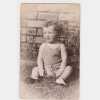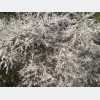| Profile | Posted by | Options | Post Date |

|
Lynda
|
Report
|
24 Jun 2011 12:22 |
|
Hi thanks for the offer looking for
Conniss
good luck :-)
|

|
AnnCardiff
|
Report
|
24 Jun 2011 12:24 |
|
Last name: Farrell
This distinguished Irish surname, with variant spellings O'Farrell, (O) Ferrall, and cognates O'Farrelly and O'Ferrally, is an Anglicized form of the Old Gaelic O Fearghail. The Gaelic prefix "O" indicates "male descendant of", plus the personal byname "Fearghal", composed of the elements "fear", man, and "gal", valour; hence, "descendants" of the man of Valour". This great sept originated in the Leinster Co. of Longford and their chief known as Lord of Annaly resided at Longphuirt Ui Fearghaill (i.e. O'Farrell's fortress) from which the name of the county derives. So important was the sept that much space is accorded to them in the "Annals of the Four Masters". There were two main branches of the O'Farrells, the chiefs of which were distinguished as O'Farrell Boy from "buidhe", yellow or Golden, and O'Farrell Bane from ban "fair" or "white". Several of the family distinguished themselves in the Irish brigade in France, and Sir Thomas Farrell (1827 - 1900), was a noted sculptor many of whose statues adorn the city of Dublin. A Coat of Arms granted to the (O) Farrell family depicts a gold lion rampant on a green shield. On the Crest there is a black greyhound springing from a ducal coronet. The first recorded spelling of the family name is shown to be that of Father Richard O'Farrell, which was dated circa 1615 - 1663, Annaly, Co. Longford, during the reign of King James 1 of England and V1 of Scotland, 1603 - 1625. Surnames became necessary when governments introduced personal taxation. In England this was known as Poll Tax. Throughout the centuries, surnames in every country have continued to "develop" often leading to astonishing variants of the original spelling.
Read more: http://www.surnamedb.com/Surname/Farrell#ixzz1QBwqUo1E
|

|
ElizabethK
|
Report
|
24 Jun 2011 15:26 |
|
Thank you Ann
|

|
AnnCardiff
|
Report
|
24 Jun 2011 16:54 |
|
Last name: Conniss
Please accept our apologies but this surname has yet to be researched.
This surname needs a sponsor.
Read more: http://www.surnamedb.com/Surname/Conniss#ixzz1QD2nwQr1
|

|
Peter
|
Report
|
24 Jun 2011 18:15 |
|
Thank's for the offer Theresa, my Irish names are:-
Bardin, Davis, Curry and Condon
|

|
AnnCardiff
|
Report
|
24 Jun 2011 18:36 |
|
so very simple to look these up yourselves you know - the website is at the foot of every posting!!
Last name: Bardin
Please accept our apologies but this surname has yet to be researched.
This surname needs a sponsor.
Read more: http://www.surnamedb.com/Surname/Bardin#ixzz1QDRVtHfy
|

|
AnnCardiff
|
Report
|
24 Jun 2011 18:36 |
|
Last name: Curry
This unusual and interesting Anglo-Scottish surname has three possible origins. The first of these is English and a locational name from any one of the places in the counties of Cornwall but mainly Somerset such as Curry Mallet or Curry Revel, which are named from the river Curry, on which they stand. The etymology of the river name is obscure, but it may be from the pre 7th century Olde English word "cweorn," meaning a mill or mills. The other possible origins are both Scottish and also locational. The first is from the place called Currie in the former county of Midlothian, and recorded in this form in 1230. This is thought to be derived from the Gaelic word 'curraigh', meaning a wet plain or marsh, or secondly from the place called Corrie, in the former County of Dumfrieshire. This is named from the ancient Gaelic word 'coire', meaning a cauldron, but used in a transferred sense to describe a circular hanging valley by a mountain. The first recording of the name in Scotland is that of Philip de Curry of the town of Melrose in 1279, whilst in England an example is that of John Goddard and Margaret Curry who were married at St. George's chapel, Hanover Square, Westminster, in the year 1742. The first recorded spelling of the family name is shown to be that of Richard de Cury. This was dated 1212, in the tax registers known as the Fees Court, for Somerset, during the reign of King John of England, 1199 - 1216. Surnames became necessary when governments introduced personal taxation. In England this was sometimes known as Poll Tax. Throughout the centuries, surnames in every country have continued to "develop" often leading to astonishing variants of the original spelling.
Read more: http://www.surnamedb.com/Surname/Curry#ixzz1QDSW2b9O
|

|
AnnCardiff
|
Report
|
24 Jun 2011 18:37 |
|
Last name: Condon
Condon is the name borne by a hibernicized Welsh-Norman family who entered Ireland at the time of the Anglo-Norman invasion, (1170). Originally, de Cauntenton, the name was Gaelicized Condun and later Anglicized Condon. This locational name is believed to derive ultimately from a place in Nottinghamshire called Caunton. Recorded as Calnestune in the Domesday Book of 1086 and as Calnotheston in the 1167, Pipe Rolls of that county, the place was so called from the old English pre 7th Century, personal name Calunoth, a compound of "Calu", bald, plus "noth", daring, and the old English "tun", a settlement. The north-eastern division of county Cork, close to the adjoining counties of Limerick and Tipperary, was possessed by the Condons and is now called the barony of Condons, their principal stronghold being the Castle of Cloghleagh near Kilworth. In 1605, David Condon in a letter to the Secretary of State, described himself as "Chief of his sept". The first recorded spelling of the family name is shown to be that of de Cauntenton, which was dated circa 1170, "Medieval Records of Munster", during the reign of King Rory O' Conor, High King of Ireland, 1166 - 1198. Surnames became necessary when governments introduced personal taxation. In England this was known as Poll Tax. Throughout the centuries, surnames in every country have continued to "develop" often leading to astonishing variants of the original spelling.
Read more: http://www.surnamedb.com/Surname/Condon#ixzz1QDSilAd0
|

|
AnnCardiff
|
Report
|
24 Jun 2011 18:38 |
|
Last name: Davis
This distinguished surname, with no less than twenty Coats of Arms, and several notable entries in the "Dictionary of National Biography", is a patronymic form of the male given name David, itself coming from the Hebrew "Dodaveha" meaning "Beloved of Jehovah". This name was borne by the greatest of the early kings of Israel, which led to its popularity first among the Jews, and later among Christians throughout Europe in the Middle Ages. In Britain, the popularity of the personal name was increased due to the ame of St. David, 6th Century Bishop of Menevia, who became patron saint of Wales, and also as a result of its having been borne by two kings of Scotland: David 1, who reigned from 1124 to 1153, and David 11 (1329 - 1371). One David clericus, recorded in Documents relating to the Danelaw, Lincolnshire, dated 1150, is one of the earliest recorded bearers of the personal name in England. The patronymic first emerges in the early 14th Century (see below), and in 1402, a Richard Davys was entered in the Register of the Freemen of the City of York. Richard Barrett Davis (1782 - 1852) was animal painter to William 1V, and Sir John Francis Davis, chief superintendent of British trade in China, was made K.C.B. in 1854. The Coat of Arms most associated with the name is a silver shield with a chevron pean, in base a black lion rampant, a chief indented of the last, and a canton ermines. The first recorded spelling of the family name is shown to be that of John Dauisse, which was dated 1327, in the "Subsidy Rolls of Cambridgeshire", during the reign of King Edward 111, known as "The Father of the Navy", 1327 - 1377. Surnames became necessary when governments introduced personal taxation. In England this was known as Poll Tax. Throughout the centuries, surnames in every country have continued to "develop" often leading to astonishing variants of the original spelling.
Read more: http://www.surnamedb.com/Surname/Davis#ixzz1QDSvkMh2
|

|
GinaS
|
Report
|
24 Jun 2011 19:42 |
|
Many thanks Ann of Green Gables for the data on Casserly and Splane names.
Apologies for the delay,
Kindest regards, GinaS
|

|
Suzanne
|
Report
|
24 Jun 2011 21:56 |
|
hi could you look up mears or myers for me please, family from antrim and belfast.x :-D :-D
|

|
AnnCardiff
|
Report
|
24 Jun 2011 21:58 |
|
I'll take a look but pretty sure Mears has alreaady been done
|

|
AnnCardiff
|
Report
|
24 Jun 2011 21:59 |
|
Last name: Mears
This interesting surname, of Anglo-Saxon origin, is a topographical name for someone who lived by a pond, deriving from the Olde English pre 7th Century "mere" meaning "lake, pond", or a topographical name for someone who lived near a boundary, deriving from the Olde English "(ge)moere" meaning "boundary". The surname dates back to the mid 13th Century (see below), and further early recordings include: Gregory de la Mere, listed in the Hundred Rolls of Wiltshire, and Adam del Mere (1307), in the Court Rolls of the Manor of Wakefield, Yorkshire. Variations in the idiom of the spelling include Meares, Meers, Meres, Meeres and Merris. Recordings from London Church Registers include: the marriage of John Merer and Margarett Francis at St. Margaret Lothbury, on February 30th 1563; the christening of Joan Meares on November 18th 1587, at St. Martin in the Fields, Westminster; and the christening of Lydia, daughter of William and Elizabeth Meares, at St. Sepulchre, on May 10th 1702. One John Mears (1695 - 1767) was an Irish presbyterian divine having studied divinity in Glasgow and received an M.A., in 1713. The first recorded spelling of the family name is shown to be that of Robert atte Mere, which was dated 1269, witness in the "Assize Court Rolls of Somerset", during the reign of King Henry 111, known as "The Frenchman", 1216 - 1272. Surnames became necessary when governments introduced personal taxation. In England this was known as Poll Tax. Throughout the centuries, surnames in every country have continued to "develop" often leading to astonishing variants of the original spelling.
Read more: http://www.surnamedb.com/Surname/Mears#ixzz1QEHcYByf
|

|
~flying doctor~
|
Report
|
25 Jun 2011 19:08 |
|
Hi can you find a Baglin believed to be of Norse origin but I think there are some in Ireland. Elaine :-)
|

|
AnnCardiff
|
Report
|
25 Jun 2011 19:26 |
|
Last name: Baglin
This interesting surname with variant spellings Beglan, Beglin, Baglan, Baglin, Bagline, Bagling, Baglon, etc., is an Anglicized form of the Gaelic "O Beigleighinn", the prefix "O" meaning "descendant of" plus "beag", "little" plus "Leighinn", "Scholarship". It is a rare name found mainly in County Westmeath and County Longford. The surname dates back to the early 16th Century, (see below). The London church records include one Anne, daughter of Samuel and Anne Baglin, who was christened on October 27th 1684, and their son William was christened on May 3rd 1691, both at St. Dunstan, Stepney. Richard Bagland married Mary Stevens on March 1694, at St. James Dukes Place, London. William, son of John and Hannah Bagling, was christened at St. Dunstan, Stepney, on March 16th 1712. One, Thomas Baglen is recorded as living in Virgina in 1624, and Bridget Baglan, a famine emigrant, sailed from Liverpool aboard the Oxford on January 16th 1846. The first recorded spelling of the family name is shown to be that of Maurice O Beglin, which was dated 1529, Annals of Loch Ce, during the reign of King Henry V111, "Good King Hal", 1509 - 1547. Surnames became necessary when governments introduced personal taxation. In England this was known as Poll Tax. Throughout the centuries, surnames in every country have continued to "develop" often leading to astonishing variants of the original spelling.
Read more: http://www.surnamedb.com/Surname/Baglin#ixzz1QJVdAdI7
|

|
GEORGINA
|
Report
|
27 Jun 2011 22:21 |
|
Hello Teresa
Do you have anything in your book about the name RATH ??
thank you
carol
|

|
AnnCardiff
|
Report
|
27 Jun 2011 22:46 |
|
Last name: Rath
Please accept our apologies but this surname has yet to be researched.
This surname needs a sponsor
Read more: http://www.surnamedb.com/Surname/Rath#ixzz1QW0wc59Q
|

|
Suzanne
|
Report
|
28 Jun 2011 20:57 |
|
thank you ann.
very interesting.x :-D
|

|
Ann
|
Report
|
5 Jul 2011 19:44 |
|
Hi Ann
Finnigan and Nolan. Please
|

|
AnnCardiff
|
Report
|
5 Jul 2011 23:59 |
|
Last name: Nolan
This famous Irish surname is recorded in the varied spellings of O'Nolan, O'Noulane, O'Noland, O' Nowlan, and the short forms of Nolan, Nowlan, and Nowland. However spelt today it is an anglicized form of the original pre 12th century Gaelic O'Nullain, which translates loosely as 'The descendant of the crier', probably a reference to the first chief of the clan who held the hereditary office of herald to the Kings of Leinster. The chief was known as the Prince of Foherta, and he held the barony of Foherta, the modern barony of Forth. A branch of the family migrated to Connacht in the 16th Century and gained possession of extensive land tracts in Counties Galway and Mayo. A smaller branch settled in Corca Laoidh (South-West Cork) and here the name appeared as O'Huallachain meaning "proud" or "noble". The nameholders seem to have lost most of their holdings after the Battle of the Boyne in 1690 when they supported James 11nd, (1689 - 1690), the last king of Ireland. The name later gained prominence in the British Army. Captain Lewis Nolan (1818 - 1854), was the foremost exponent of Light Cavalry tactics, and it was he who carried the famous order for the charge of the Light Brigade. Owing to a misunderstanding between Nolan and Lord Lucan, the charge resulted in the total destruction of the Brigade, and the death of Nolan himself. The first recorded spelling of the family name is shown to be that of Teag O' Nuallain, which was dated 1672, in Lynch's register known as "De Praesulibus". This was during the reign of King Charles 11nd of England, known as "The Merry Monarch", 1660 - 1685. Surnames became necessary when governments introduced personal taxation. In England this was known as Poll Tax. Throughout the centuries, surnames in every country have continued to "develop" often leading to astonishing variants of the original spelling.1685.
Read more: http://www.surnamedb.com/Surname/Nolan#ixzz1RH5LqwtF
|

